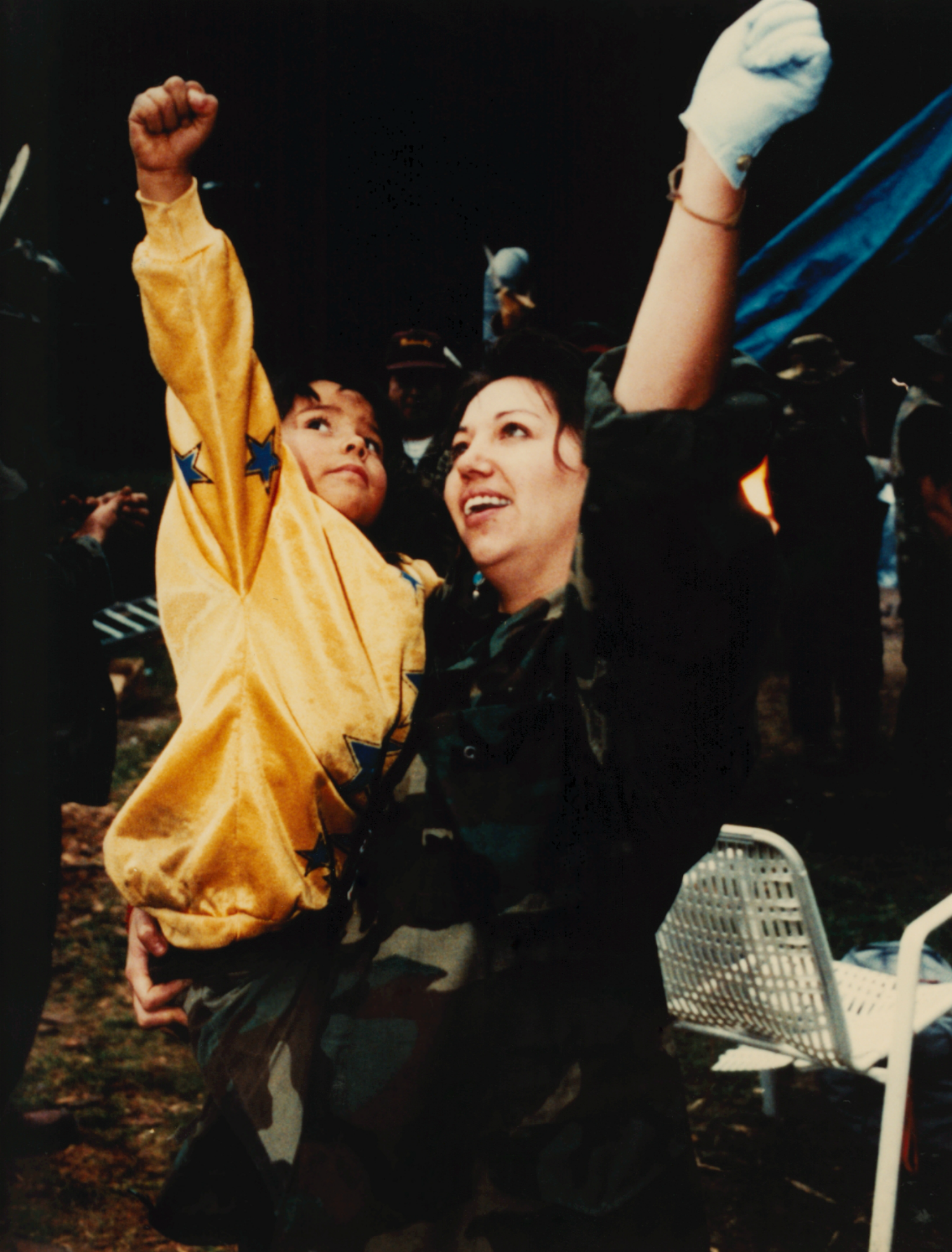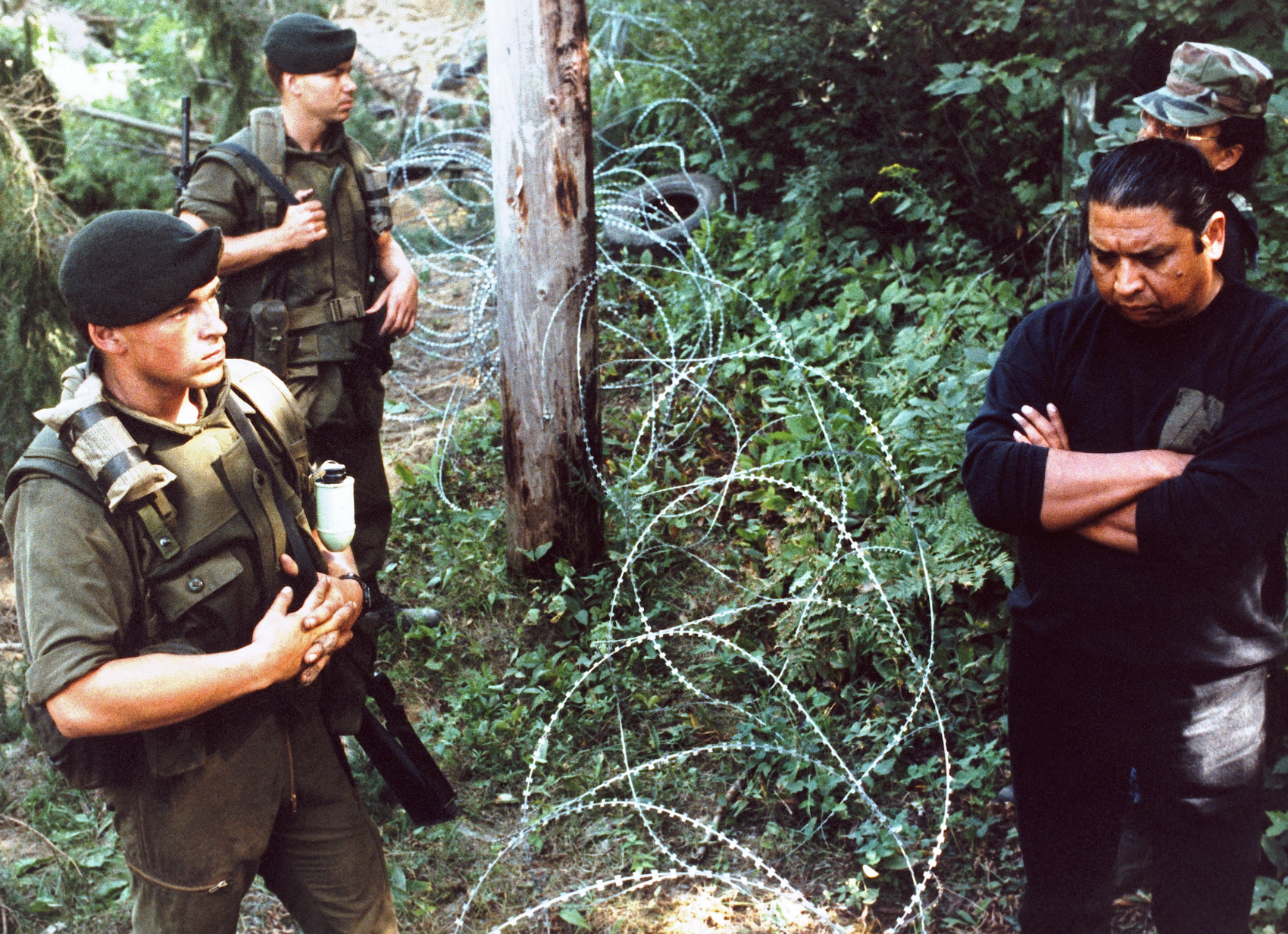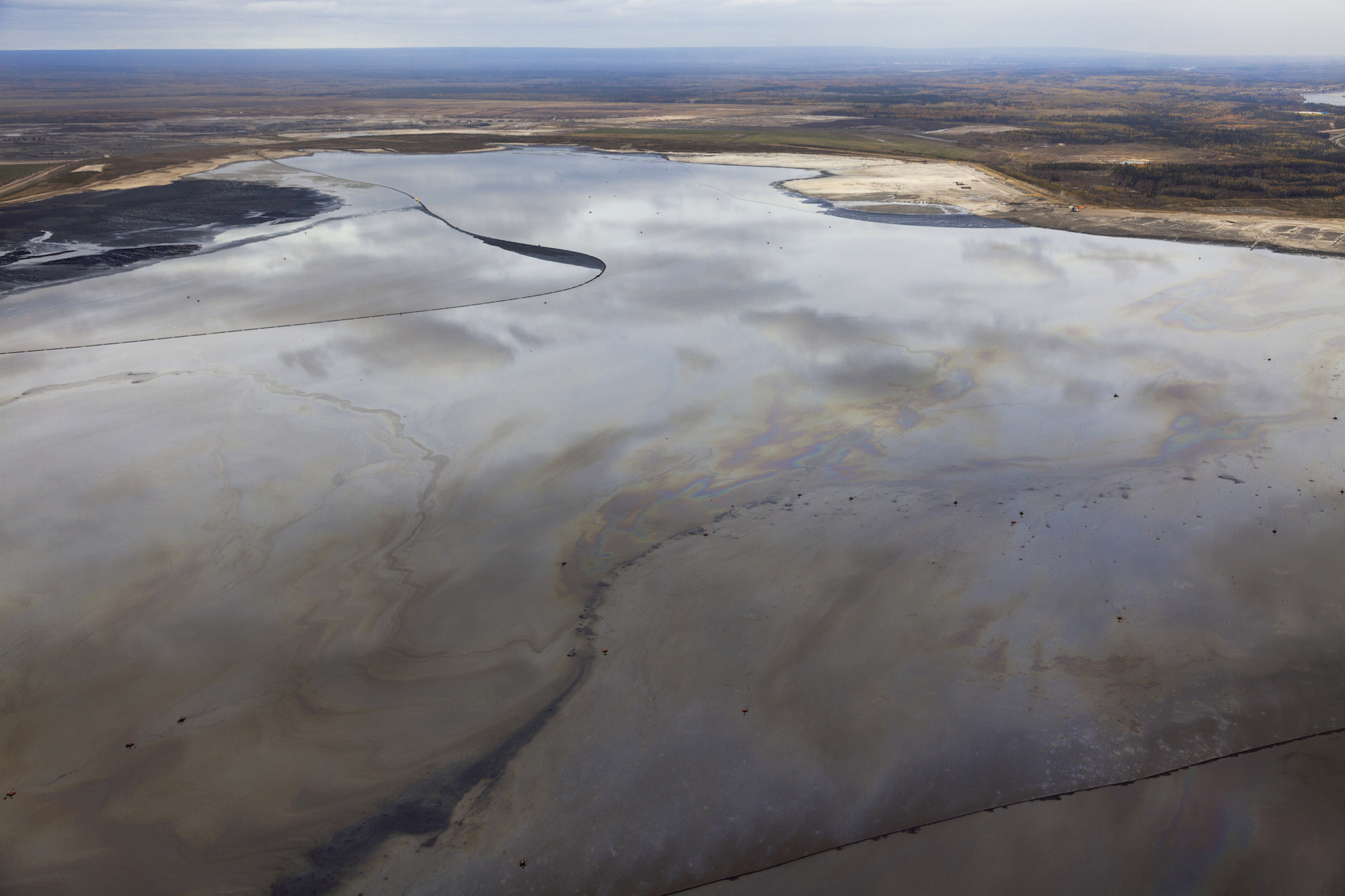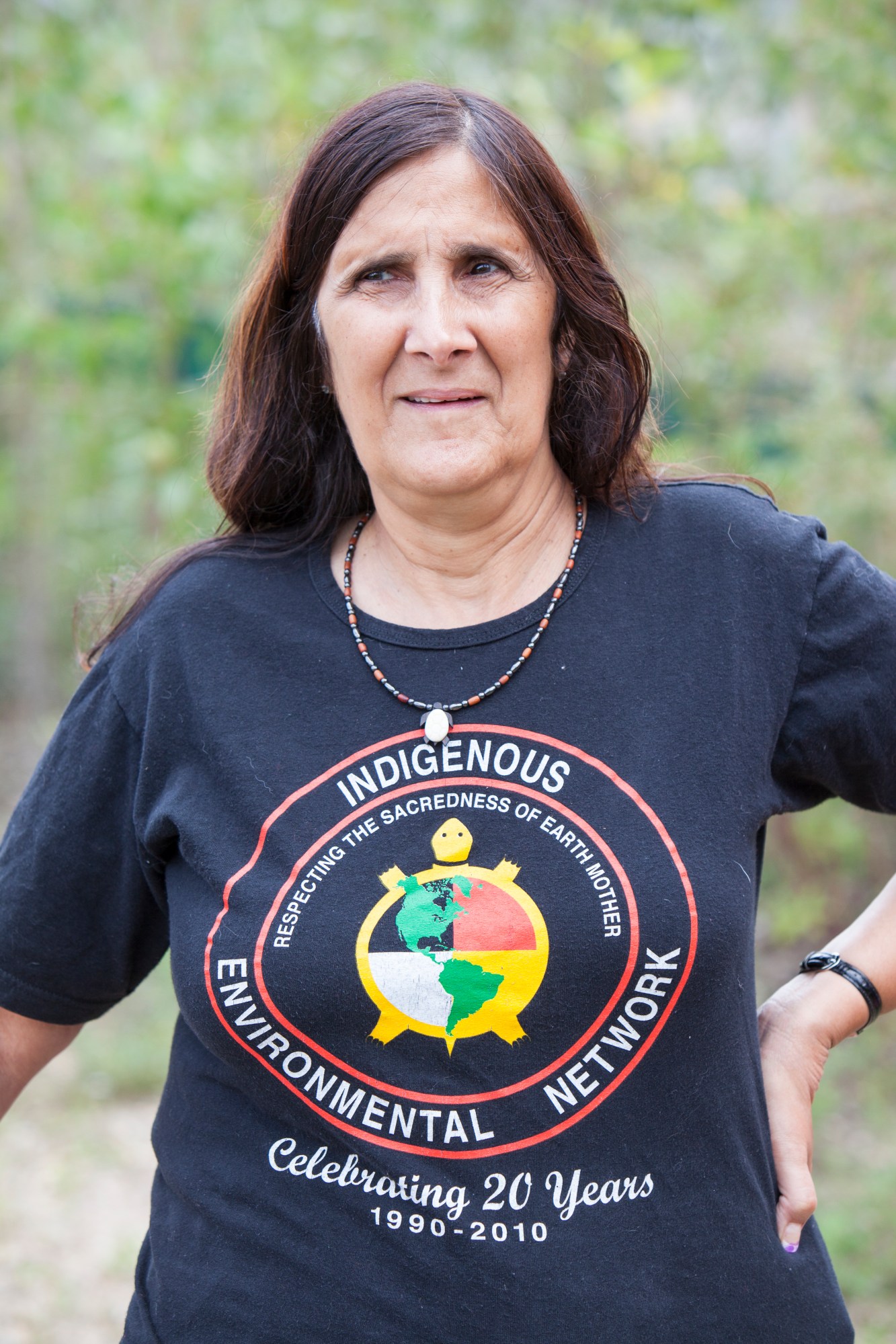As the Amazon wildfires escalated this summer, the world awoke in panic mode, as if the alarm clock had been set to snooze for too long. This process of abrupt enlightenment, along with movements lead by figures like Greta Thunberg and Extinction Rebellion protesters, has forced us to recognise the immediate action needed to combat the climate crisis. The Oxford Dictionary, for one, has announced “climate emergency” as its word of the year. But as effective as such gestures have been in bringing the matter to mass attention, most of us are a little bit late to the party.
The world over, Indigenous activists have been standing at the frontlines of battles for climate justice since day one, protecting the conservation of land and resources for decades now. “People are the land,” Abenaki filmmaker, singer, and activist Alanis Obomsawin says. “The connection between the people and the land is the same as being connected to another human being. That’s how strong it is.”
When the territory of an Indigenous community is threatened, be it by government decisions or by climate change, the human rights of that community’s inhabitants are what’s really under attack. The unceded territories — those neither formally signed away nor colonised — remain at risk in times where capitalism is tied to the exploitation of natural resources. “We’ve been fighting colonial repression in spite of multigenerational efforts — during our grandparents’ and our great-grandparents’ times — to stop the theft of our lands,” says Mohawk activist Ellen Gabriel.

Not so long ago, the Mohawk people sparked attention in Canada and beyond with their pioneering Oka protest. While the environmental issues weren’t the protest’s sole focus, it drew eyes to the importance of protecting sacred Indigenous land. During the 1990 Oka Crisis, they defended their title of The Pines, the last six kilometers of pine forest yet to be commercially exploited on First Nation reserve Kanehsatà:ke. On the other side of the conflict was the town of Oka, Quebec, who wanted to expand a golf club and build a condominium complex on Mohawk land – including over a cemetery, a sacred site to the community.
For more than two months, the Mohawks stood before the police and army, occupying The Pines with camps and barricading the entrance as a last resort. Since the area was, and remains, an unceded territory, they fought to maintain their sovereignty. “We can write all the letters we want, but the government will ignore us until the points we put up blockades,” Mohawk activist Ellen Gabriel says.
“From the railroad industry a while ago to housing and other resource-related developments today, Canada’s prosperity has always been based on resource exploitation. They’d rather call us violent radicals, while, in truth, the country assumed sovereignty over our lands,” she says. “It’s a violation of what belongs to us, the land.”

In the ensuing confrontation, one officer died, and nearly a hundred people were injured. The crisis culminated in the Mohawks’ surrender, leaving both parties with empty hands: no greenery for the town council and no land for Mohawks. While the people of Kanehsatà:ke didn’t get the land back, the events brought about a resurgence of Indigenous pride and questions surrounding the legitimacy of government moves to commercially exploit their territories.
“Before the crisis, companies or residents from nearby villages were always trying to take pieces of the Mohawks’ land because ‘they weren’t using it.’ They’ve been maltreated, lied to, and tricked for so long, and this is something any Indigenous community has experienced,” Obomsawin, who directed the documentary Kanehsatà:ke: 270 Years of Resistance says. “When the government addresses us now, they talk differently, and this is thanks to the Mohawks.”
The experience shared in the Oka Crisis created a strong bond for Indigenous sovereignty that’s now applied to fight environmental commercialism in the form of, say, mining industries, oil extraction and housing development. Given that such fights are matters of human rights, environmental organisations can find legal reinforcement by working to support Indigenous causes, and allowing communities to take the lead.
As the founder of the UK Tar Sands Network, a campaign against oil developments in western Canada, Suzanne Dhaliwal points out that the only way to protect some of the largest biodiversified regions is by working in solidarity with Indigenous Peoples. In collaboration with them, her grassroots movement finds legal grounds to fight businesses who ignore Indigenous voices around matters that affect their rights, such as land exploitation. Without that alliance, her campaign would not even exist. “The Canadian government lacks an environmental legislation, say the right to have access to clean water. But together with Indigenous Peoples, we find our legal teeth to stop the boreal deforestation caused by tar sands extraction,” she says. “If we want legal tar sands operations to be grounded, the struggle for Indigenous sovereignty is the front line of the battle.”
The tar sands are extracted by companies like Kinder Morgan’s Trans Mountain Pipeline, a major project supported by a Canadian government investment that plans to run from Alberta to the coast of British Columbia for roughly a thousand kilometres. Alongside profit, projects such as these create air pollution, massive deforestation, and accelerate climate change. Not to mention the toxic risk that pipelines pose to water sources, as we saw in eastern North Dakota from the Keystone pipeline, where hundreds of thousands of gallons of oil were spilled.

Those impacts were disruptive to the United States’ environmental health, or, in the words of President Trump, “bad, huge, and terrific”. But in terms of stopping the fossil fuel projects, Suzanne maintains that “the governments are not going to do it.“
As extractive industries continue to ruin what biodiversity remains, Indigenous and environmental activists are the ones that find themselves at the front line in the fight for climate justice. During the Dakota Access Pipeline protests a few years ago, Native American youths ran a campaign called “ReZpect Our Water”, successfully defending the preservation of the rivers near Standing Rock Indian Reservation from threatening oil extraction plans (until Trump’s presidency). More recently, organisations like Beaver Hills Warriors have been raising awareness around the threat of oil sands mining in northeastern Alberta. As Denesuline person from Cold Lake First Nations and co-organizer Nigel Henri Robinson explains: “Whereas most of society values profit at the expense of natural resources and wildlife, we have been and are living a reciprocal relationship with our environment. We take what nature gives to us.”

This concept of equality between humans and nature, of cooperating with the environment and respecting its carrying capacity, is the very essence of Indigenous knowledge. Yet the idea of waiting to receive rather than taking deliberately might sound alien to a settler society. The best solution to climate crisis that our industrialised world has conceived of is ‘sustainability’, of which Ellen Gabriel partly approves. “It should be more about cultivating love and respect for the environment that we’re a part of, and, of course, decolonizing the way in which we live on this beautiful little blue planet,” she says.
One thing is for sure: people in power need to reconsider our relation to natural resources, implementing rights to the land if needed. The Green New Deal, supported by politicians like Democrat socialist Alexandria Ocasio-Cortez — who started her political journey among Standing Rock protesters — and Labour leader Jeremy Corbyn, confronts the climate crisis by acknowledging it, at the very least. But if we’re actually going to tackle the problems head one, Indigenous People must have a seat at the table — indigenizing climate justice using the traditional and ecological knowledge possessed by these communities. They’ve been hustling long enough; now it’s time we step back and listen.
“Our elders warned settlers that we cannot abuse the land and expect future generations to be able to enjoy it,” Ellen says. “That’s what we keep saying — we cannot go on like this.”

